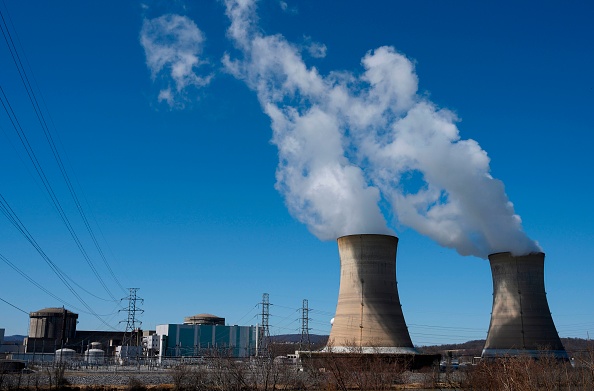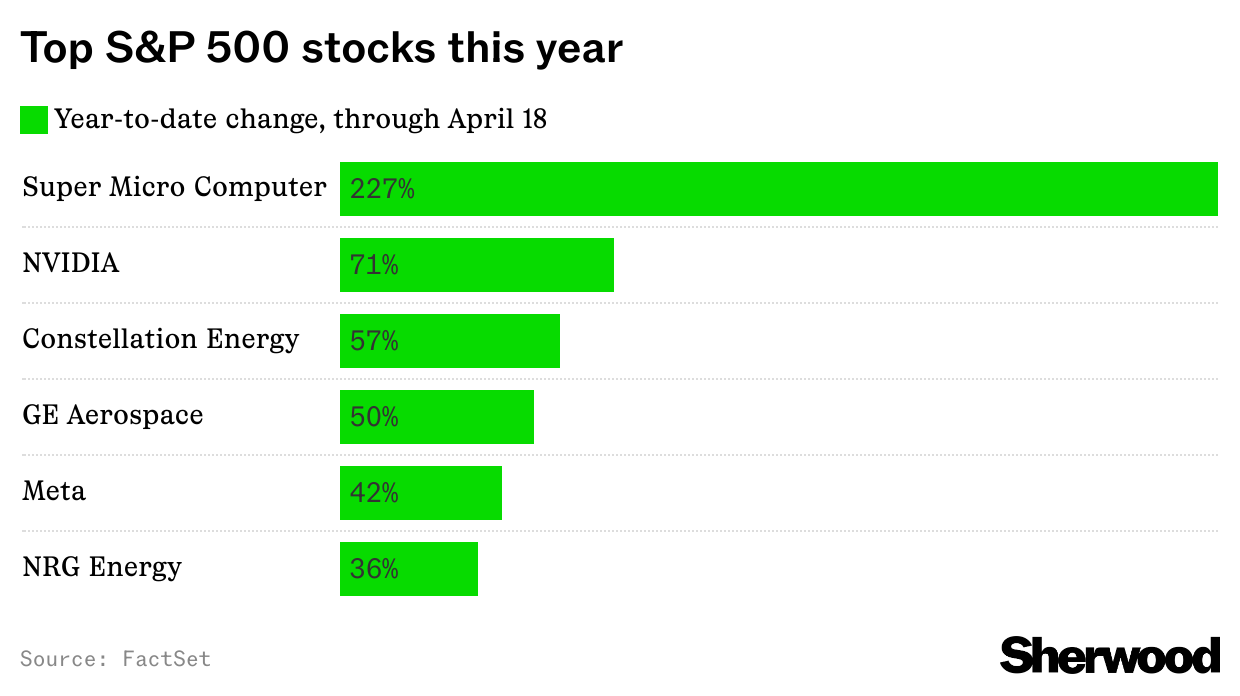Tuesday Apr.19, 2022
💊 Twitter’s “poison pill”
Case of Elon-itis? Take one and call us in the morning (Peter Dazeley/Getty Images)
Hey Snackers,
The comeback of the season: QR codes. This year the University of Central Florida’s football team will replace players’ numbers with QR codes to encourage digital engagement.
Stocks fell slightly as investors prepped for one of the busiest weeks of the earnings season. Meanwhile, Russia has begun its long-feared new offensive in eastern Ukraine.
Swallow
Twitter pops a “poison pill” to block Elon’s buyout. One possible side effect: selling to someone else.
Bitter medicine… Twitter’s taking drastic measures to get rid of its Elon headache — a sign it really doesn’t want to be under the Technoking’s tweet-happy thumb. Quick recap: two weeks ago Elon Musk revealed a 9.2% stake in Twitter. He then made a $43B offer to buy the company (after declining a seat on its board). Twitter responded by creating a “poison pill” — a tried-and-true way for companies to avoid a hostile takeover.
- How it works: If Elon tries to buy 15% of Twitter’s shares, the pill kicks in and lets every shareholder except Elon buy shares at half price — making a buyout way costlier for him (and diluting Twitter’s stock in the process). Twitter’s board voted unanimously to adopt the plan for one year.
The opposite of shareholder activism… is board react-ivism. Poison pills were invented in the 1980s to stop “corporate raiders” from taking over public companies. To date, no buyer has ever swallowed a poison pill and forced a takeover at an inflated price (they usually back down).
- Taking their pills: Netflix used a poison pill to stop activist investor Carl Icahn from taking over in 2012, and Papa John’s adopted one to prevent disgraced founder John Schnatter — Papa John himself — from regaining control in 2018.
But poison pills aren’t 100% effective… and if anyone’s willing to swallow one, it might be Elon. With enough money and influence, it’s possible to avoid a poison pill. Theoretically, Elon could persuade 51% of shareholders to replace Twitter’s board — and then buy Twitter anyway, thereby circumventing the pill. But that would take a while, and Twitter’s board could choose another buyer in the meantime. Already, private-equity giants Thoma Bravo and Apollo are reportedly considering bids.
Tunes
SiriusXM could be the next company hit hard by the chip shortage, but “sticky” subscribers are helping cushion the blow
The sound of Pop2K... a road-trip playlist must. SiriusXM, the home of Howard Stern and all-day Bruce Springsteen radio, was once a struggling player in a dying industry. It has since turned its fortunes around by focusing on cars… and drivers who’d rather flip on their fave station than fiddle with an aux cord. But Sirius shares fell nearly 3% yesterday after an analyst said the car industry’s ongoing chip shortage could turn into a profit prob.
- Last quarter Sirius’ free-trial subscribers fell 19% from 2020, partly because of declining car sales. FYI: Sirius relies on converting its trial members into full-time subscribers to make $$.
Capitalizing on the commute... Sirius’ market cap is nearly the same as Spotify’s (about $26B), thanks to its 32M+ monthly subscribers. Over the years, automakers from GM to BMW have teamed up with Sirius to integrate its satellite-radio software into their newest models. Now over 80% of new cars sold are Sirius-equipped. But global supply shortages that’ve made car inventory so tight have also put the squeeze on Sirius to diversify:
- Sirius is focused on creating content for on and off the dashboard, like hosting exclusive virtual concerts and building up its slate of podcasters.
Low churn is the key to profits… Till now, Sirius has largely dodged its car troubles by providing a wide variety of curated programming for road warriors, whether they want Top 40, podcasts, or Howard. And they’re still tuning in: Sirius’ churn rate (aka the # of subscribers who opt-out each year) is less than 2%. That’s better than traditional streamers like Disney+, Spotify, and even Netflix. Yet its long-term success is still tied to the health of the car market.
What else we’re Snackin’
- Optional: The Big 4 US airlines have dropped mask requirements after a federal judge tossed the mask mandate for planes and public transit. It comes as Covid cases are back on the rise in the US.
- Lend: Bank of America rounded out a “meh” earnings season for the big banks with a 12% profit drop, which wasn’t as bad as expected. BofA benefited from strong consumer lending, even as dealmaking dried up.
- Fruit: Workers at Apple’s flagship store in NYC’s Grand Central Terminal are taking the first steps toward unionizing, following successful campaigns at Amazon and Starbucks. Among their demands: a $30/hour wage.
- Flip: An NFT of Jack Dorsey’s first tweet, which sold for $2.9M last year, is back up for sale — but the top bids are a fraction of the original sale price. It’s a sign that the non-fungible-token craze could be cooling.
- Abode: Mortgage rates are above 5% for the first time since 2011. Since 9 of 10 US mortgages carry a rate <5%, more homeowners are likely to stay put — which means even less supply for buyers.
Tuesday
- Earnings expected from: Johnson & Johnson, Netflix, Prologis, Lockheed Martin, IBM, Halliburton, and Hasbro
Authors of this Snacks own: shares of Netflix, Apple, Amazon, Disney, GM, Spotify, Starbucks, Sirius XM, and Twitter
ID: 2156755
.png)

